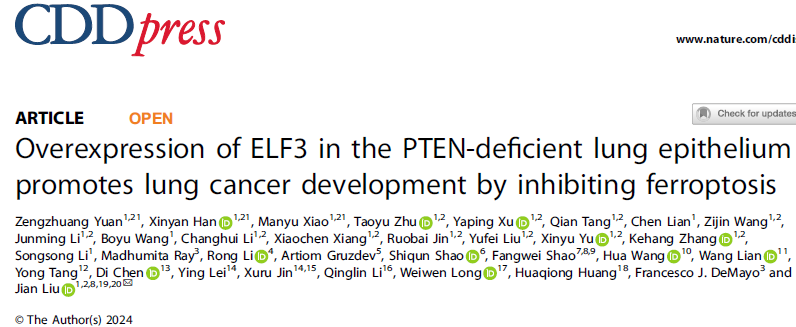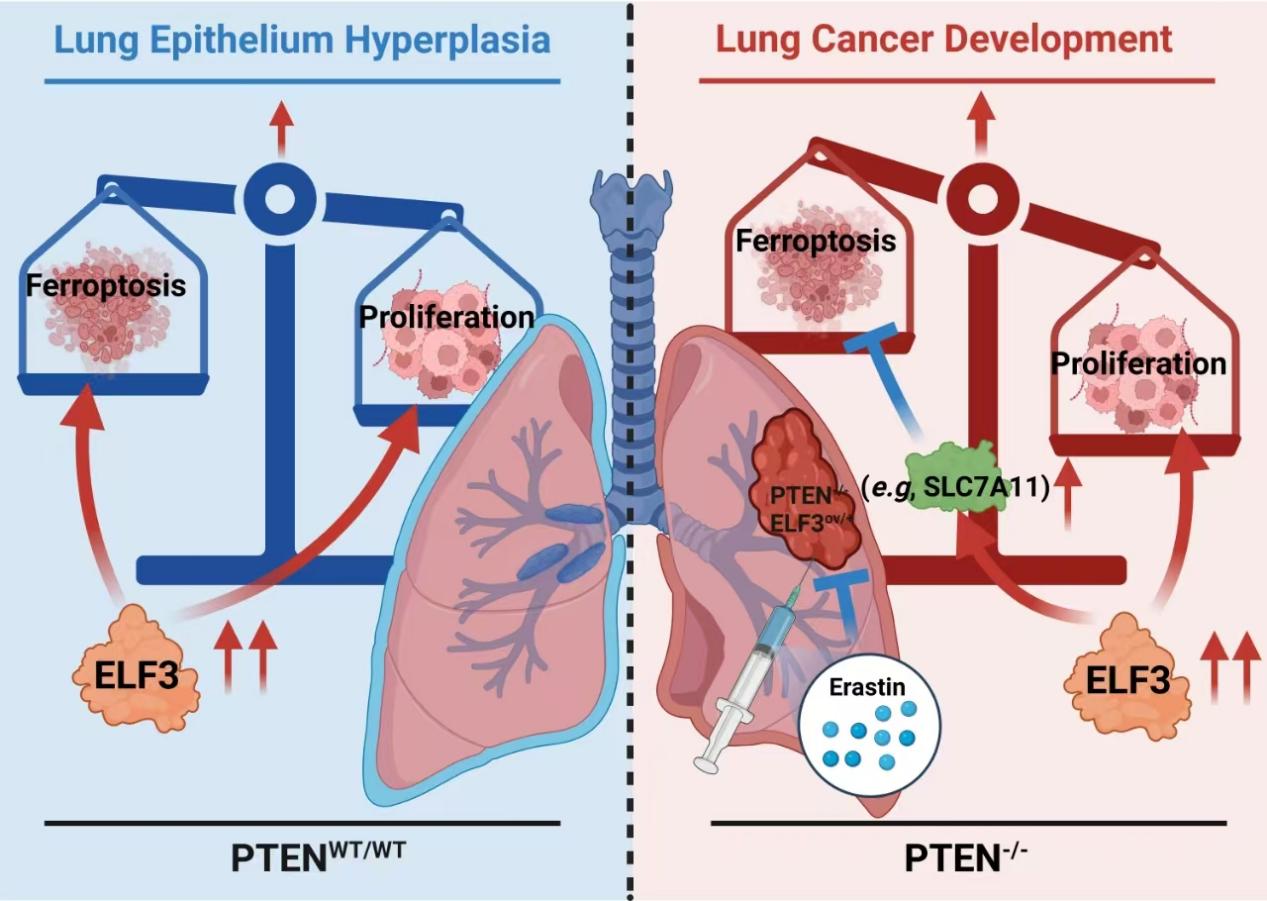Recently, Dr. Jian Liu’s group from Zhejiang University-University of Edinburgh Institute (ZJE) published an article entitled “Overexpression of ELF3 in the PTEN-deficient Lung Epithelium Promotes Lung Cancer Development by Inhibiting Ferroptosis” in Cell Death & Disease.
DOI:10.1038/s41419-024-07274-5

Ferroptosis has been shown to play a crucial role in preventing cancer development, but the underlying mechanisms of dysregulated genes and genetic alternations driving cancer development by regulating ferroptosis remain unclear. Here, we showed that the synergistic role of ELF3 overexpression and PTEN deficiency in driving lung cancer development was highly dependent on the regulation of ferroptosis. Human ELF3 (hELF3) overexpression in murine lung epithelial cells only caused hyperplasia with increased proliferation and ferroptosis. hELF3 overexpression and Pten genetic disruption significantly induced lung tumor development with increased proliferation and inhibited ferroptosis. Mechanistically, we found it was due to the induction of SCL7A11, a typical ferroptosis inhibitor, and ELF3 directly and positively regulated SCL7A11 in the PTEN-deficient background. Erastin-mediated inhibition of SCL7A11 induced ferroptosis in cells with ELF3 overexpression and PTEN deficiency and thus inhibited cell colony formation and tumor development. Clinically, human lung tumors showed a negative correlation between ELF3 and PTEN expression and a positive correlation between ELF3 and SCL7A11 in a subset of human lung tumors with PTEN-low expression. ELF3 and SCL7A11 expression levels were negatively associated with lung cancer patients' survival rates. In summary, ferroptosis induction can effectively attenuate lung tumor development induced by ELF3 overexpression and PTEN downregulation or loss-of-function mutations.

ELF3 has opposite effects on the regulation of the Ferroptosis pathway in the context of PTEN absence and present
Pro. Jian Liu is the corresponding author. In addition, the Master student Zengzhuang Yuan (ZJE, 2021 entry) is the leading first author, while the Master students Xinyan Han (ZJE, 2022 entry) and Manyu Xiao (ZJE, 2022 entry) participated in this research as co-first authors. The ZJE undergraduate students, including Taoyu Zhu, Xinyu Yu, and Kehang Zhang, participated in this research as co-authors.
About Jian Liu’s lab
Jian Liu's group is now interested in investigating lung squamous cell carcinoma development and treatment using genetic mouse models and AI+ multi-omics, especially the research direction on cancer immunology and 3D genome. He has published over 50 papers, including publications in the past three years, as a co-corresponding author in Nature Communications (2), Advanced Science, Oncogene, Cell Death & Disease, and Molecular Oncology journals. Moreover, his lab developed a multi-omics web database Omics3D (http://omics3d.net/) to investigate the de novo functional genome during cancer development.
Email:JianL@intl.zju.edu.cn
Jian Liu’s lab (https://person.zju.edu.cn/liujian) is recruiting postdoc and Ph.D. students, including the single-degree students from University of Edinburgh.







